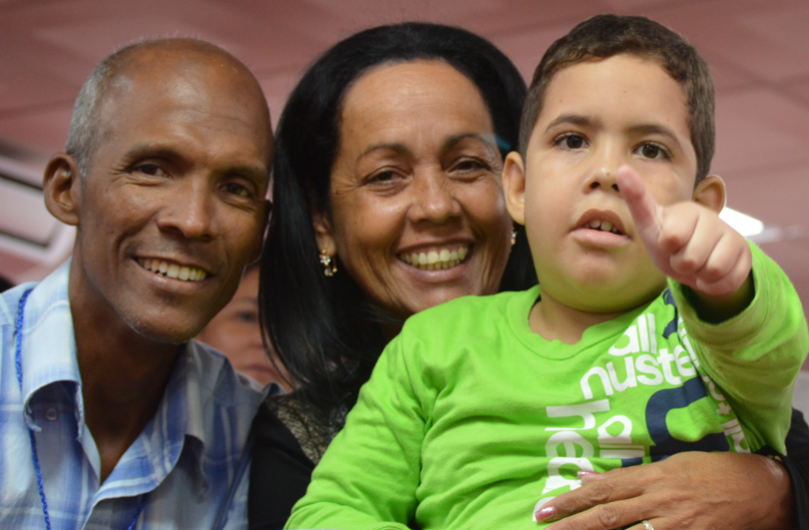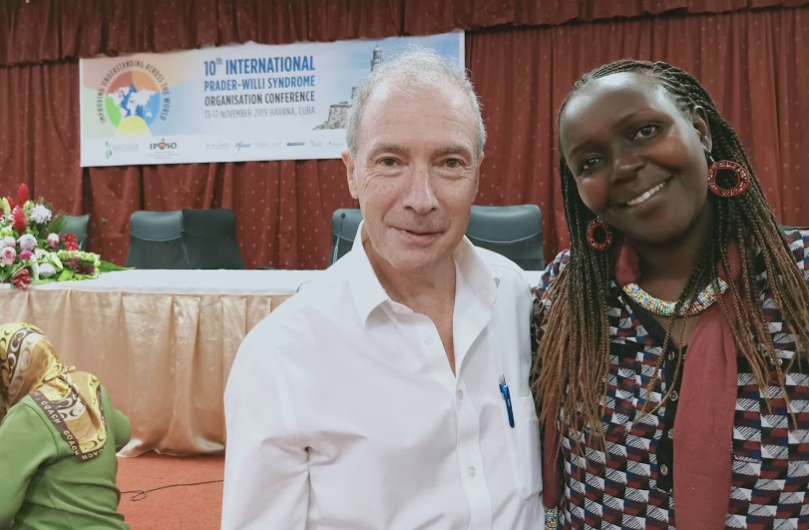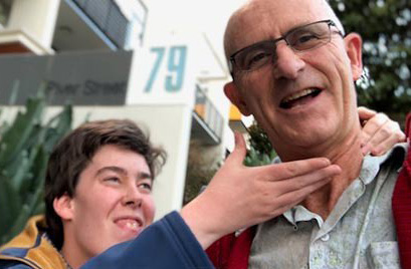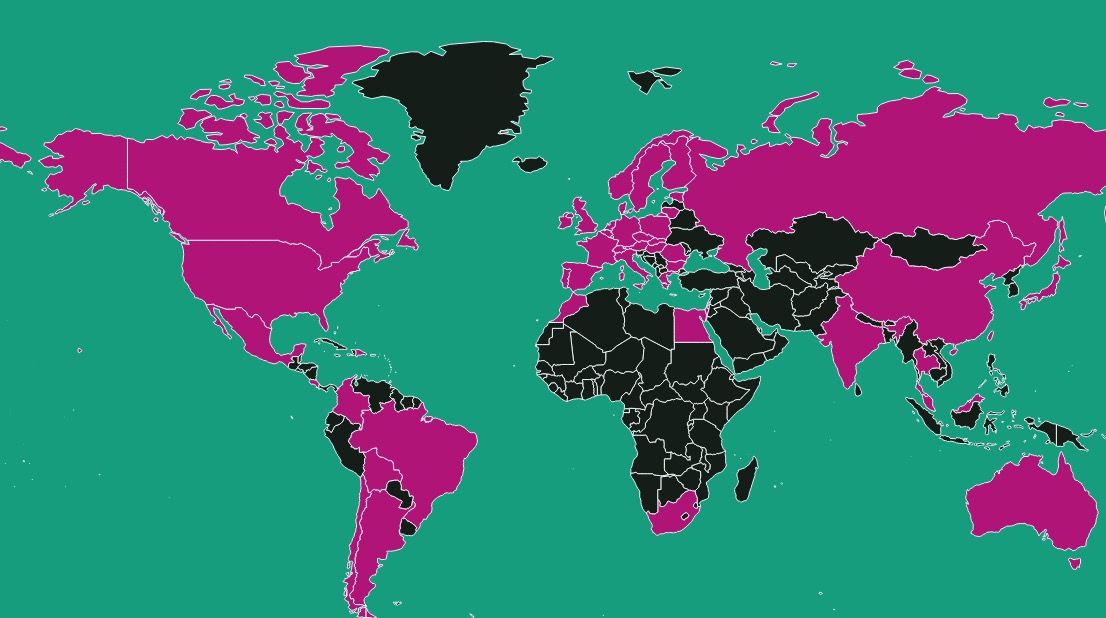Support for Conferences and Workshops and small projects
Organising conferences and workshops in your country can be a great way to bring people together to share information and build support networks. We have supported many events over the years and we have done this in a variety of ways from providing speakers and advice to providing financial support. In a new initiative in 2023 and thanks to Friends of IPWSO (USA) we have also provided support for small projects. All opportunities for funding are announced in our newsletter and via our social media channels.
This IPWSO project is supported by
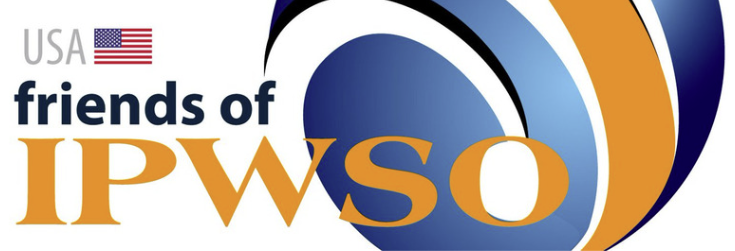
New round of PWS grants opens 1 January 2026!
A new round of funding for Meetings and Workshops and Small Projects opens on 1 January 2026.
If you need inspiration, take a look at the wonderful PWS projects that we have previously funded.
See the Guidance Notes and Application Process for Conference and Workshops here and for Small Projects/Microgrants here. Submit your proposals by 31 March. Contact Nora – nmcnairney@ipwso.org if you wish to discuss further.
Successful awards in 2025
Congratulations to all our award recipients in 2025.
Small Projects. Grants have been awarded to support:
– Fundación Maria José, (Mexico) and PWSA (Vietnam) for the production and distribution of educational materials.
– PWSA Bulgaria to help transform their website.
– SPW Brasil to deliver media training sessions to their members.
– APPW Portugal: 2nd Solidarity Gala Event.
– Medical professionals in Kenya, Nigeria and Cameroon to develop a series of continuous medical educational events, in person and online.
– Medical professionals in Argentina to develop a multi-disciplinary team day care unit at the Children’s Hospital Ricardo, Buenos Aires, and separately to develop an RDIBot Prototype – an AI driven tool to address misdiagnosis in PWS
Conference and Workshops. Grants have been awarded to support:
– PWSA EG-ME to deliver a 2-day virtual event and 2-day camp event for families.
– PWSA Colombia to enable delivery of the Carers’ Training Workshop.
– An in-person conference at the Children’s Central Hospital, Georgia, for professionals and families.
– the Annual Scientific Conference of the Endocrine and Metabolism Society of Nigeria
– the Annual Scientific Conference of the Paediatric Association of Nigeria
– the Kenya Paediatric Endocrinology Society Annual Meeting in Mombassa.
Successful awards in 2024
Congratulations to all those who received awards in 2024! We look forward to learning about your exciting projects over the coming months.
Successful applicants – 2024:
Small Projects. Awards granted to support:
– delegates from Colombia and Vietnam to attend the PWS Carers’ Conference in Berlin
– PWS associations in Brasil, Egypt and Middle East for translation educational materials
– PWS Costa Rica: to help develop a PWS website
– Aster CMI Hospital, India: to help fund research for a behavioural assessment tool
– Universiti Kebangsaan Malaysia and PWS Malaysia: an auditory and communications workshop
– PWS Portugal: Summer Camp
Conference and Workshops: Support for conferences organised by PWS Associations in Bulgaria, China, India, Mexico, New Zealand, and Portugal.
Supporting PWS events and projects in 2023
IPWSO was pleased to award grants for PWS events and projects across 11 countries in 2023. Find out more.
Supporting PWS events and projects in 2022
Pakistan – October 2022: We also supported a group of professionals in Pakistan to host an in-person and online multidisciplinary day on 28th October on the management of PWS in children and adults at the Aga Khan University Hospital. IPWSO provided a series of pre-recorded talks which formed the basis of the day’s agenda. The event had 16 participants online, and 15 in person, with the audience including paediatric endocrinologists, paediatric neurologists, paediatricians, nurses, trainees and other staff members. Many of these sessions were taken directly from the library of ECHO resources.
Mexico – October 2022: Our member association in Mexico, Fundación Mariajosé, held their 6th annual family conference on 15th October and had a successful day sharing knowledge and experiences. The event was attended by almost 200 people including people with PWS, family members, volunteers and speakers. The purpose of the day was to share information and raise awareness of the common issues affecting people with PWS. IPWSO awarded financial support for the event.
Hungary – October 2022: Prof Tony Holland, Dr Susanne Blichfeldt and Dr Charlotte Höybye all travelled to speak at the Hungarian conference in Budapest on 7th October which was attended by 50 people, split equally between professionals and families. The event was hosted by our member association PWS Hungary and provided a great opportunity to spread knowledge and awareness about the syndrome. The focus of the programme was on general symptoms, mental and physical development, therapies and research.
Supporting PWS events and projects in 2021
Asia-Pacific – October 2021: IPWSO was involved in this major conference as the global principal organisation and provided speakers and financial support to enable up to 70 family members from Vietnam, Indonesia, India, China and Malaysia to attend.
India – September 2021: IPWSO provided support and advice to facilitate the hosting of an Indian Prader-Willi Syndrome Association (IPWSA) online workshop on Growth Hormone treatment in PWS.
India – July 2021: IPWSO provided funding and a speaker to support the the Pre-Conference Workshop on Prader-Willi syndrome on 2nd July 2021 at the 6th Annual BGC conference. This was a virtual workshop and 1,450 people attended.
Supporting PWS events and projects in 2019
Romania – November 2019: In November, Dr. Susanne Blichfeldt travelled to Bucharest on behalf of IPWSO to speak to families at a conference organised there. She presented on nutrition, development, neurology and behaviour and general medical issues. She also conducted several 30-minute sessions one-to-one with family groups, sharing her knowledge and experience.
Vietnam – October 2019: Georgina Loughnan (Board member), Constanze Lämmer (paediatrician and nutritionist) and Norbert Hödebeck-Stuntebeck (Chair of our Professional Providers and Caregivers Board) visited Hanoi, Vietnam, to present a Prader-Willi syndrome programme at the request of Do Thuy Lan, a psychiatrist who established the Morning Star Centre for children with disabilities and who won a scholarship to attend our Caregivers conference in Munich in 2018.
The first day was attended by about 80 professionals, including a paediatric endocrinologist and a geneticist, and many of the Morning Sun staff. The second day was attended by about 36 parents and 30 Morning Star staff members. We met with Dang Trung Tam, the president of the PWS Vietnam Network or “club” and many keen parents. Lantz Yap, from the Malaysian PWS Association joined the Sunday programme. The Vietnamese PWS Network includes 60 families. All children known to the network are under 16 years of age.
The content of the two days focused on physical, social, cognitive and emotional characteristics of PWS. This was the basis for the more individual and specific questions and answers from professionals and parents. Afterwards the participants felt very well informed and reported they had a better perspective on the future care of their children and the professionals who worked with them.
The situation in Vietnam for people with PWS needs development. Children may attend a facility, such as the Morning Star if their parents can afford the costs, but otherwise stay at home. There are no “special needs” schools in Vietnam. Lan reported that The Morning Star costs are much lower than most centres in Vietnam, and she adjusts the fees for those who are very poor. She receives no government funding, but her son-in-law has encouraged a group of his friends to sponsor some of the children to attend.
The children receive the therapies they require and life-skills training, such as dressing themselves and housework such as making the bed and cooking. The training rooms are small and closed in, but the children receive a high ratio of staff support, including one-to-one for sensory and speech therapy. Growth Hormone is available in Vietnam but at a cost for the families.
Bulgaria – March 2019: IPWSO expert Dr Susanne Blichfeldt was contacted by Dr Nikolinka Yordanova from Bulgaria, regarding a visit to Varna to attend a conference of families and professionals. We had already received some questions about two children with PWS there and were interested to follow this up. With the support of IPWSO, Susanne attended the meeting and played a major role in the event.
Dr Blichfeldt was asked to give presentations with a focus on food and nutrition and neurology for an audience consisting of parents and professionals. Parents of children with PWS were also invited for an afternoon session and individual consultations with some of the families were facilitated. For many parents it was the first time they had met other families affected by PWS
It is now possible to perform genetic testing for PWS in Bulgaria, all children can have growth hormone for free, but sleep studies are difficult to perform. Children are offered special education in school, and many have physiotherapy, the youngest in some cases have this every day, and for free. For adults with PWS the situation is difficult. There are no PWS homes, so most people stay at home with their parents. Some people can go to day centres with other people with disabilities, but a big problem is that there is little or no support for the control of food. Management of difficult behaviour, also related to food, is a problem.
In Varna, the hospital for children is also a centre for rare diseases and endocrinological problems and Professor Iotova and Dr Yordanova have developed a specialism in PWS. They inform other doctors in the hospital, have translated many articles from the IPWSO website into Bulgarian and they try to communicate about PWS to other hospitals in Bulgaria.
Colombia – March 2019: In 2019 IPWSO and Friends of IPWSO (USA) gave financial support to the development of a conference held in Bogotá to discuss behavioural and metabolic disorders. Organised by the Colombian Prader-Willi Syndrome Association in partnership with other local bodies, the event was attended by 500 delegates from Colombia, Chile, Guatemala, Panama and the USA and attracted international speakers from the USA, Spain and Chile as well as speakers from a wide range of professional backgrounds from Colombia.
Delegates came from the health, education and rehabilitation sectors and many associated professions. The conference helped the Colombian association to reach new families as well as professionals who will now work with them to support their activities.
International Community
IPWSO was established so that PWS associations, families, clinicians and caregivers around the world could exchange information and support and have a united global voice under one umbrella.
Information for Medical Professionals
The latest medical and scientific research and information, plus guides into common medical issues affecting people with PWS.
Paediatric Association of Nigeria - 57th Annual Scientific Conference
IPWSO was proud to support a dedicated PWS symposium at the 57th Annual Scientific Conference of the Paediatric Association of Nigeria (PAN) Conference held 21-23 January 2026 in Ogun State.
Famcare Board Member, Dr Elizabeth Oyenusi, presented on the clinical features, diagnosis, and management of PWS, while Dr Oluwakemi Ashubu shared the first genetically confirmed case of PWS in the country - an important milestone. The session attracted over 104 delegates and sparked a lively discussion.
IPWSO also hosted an exhbition table throughout the 3-day conference, distributing educational materials and engaging directly with healthcare professionals.
We are hugely grateful to Dr Oyenusi, Dr Ashubu and Dr Oladipo (Senior Registrar) for their support in making this educational oureach possible - helping to strengthen awareness and improve early diagnosis of PWS in Nigeria. Funding for this event was kindly provided by Friends of IPWSO (USA).
Global Newborn Society Inaugural Conference, Sweden
The Global Newborn Society’s 1st Conference took place in Uppsala and Stockholm, Sweden, from 2-4 November 2025, marking an exciting milestone for the organisation’s international community.
We were delighted that Dr Susanne Blichfeldt was invited to deliver a plenary lecture on behalf of IPWSO, titled “Neonatal Hypotonia: Clinical Features Seen in PWS That Can Help Differentiate It from Other Congenital Disorders with Similar Symptoms.”
The inaugural event brought together a diverse audience of physicians, nurses, and social care leaders from around the world. The programme was wide-ranging and stimulating, featuring cutting-edge discussions on newborn health, early diagnosis, and innovative care practices - setting a strong foundation for future collaboration within this growing global network.
ASPED 2025, Dubai, UAE
The 6th conference of the Arab Society for Paediatric Endocrinology and Diabetes was held in Dubai over two days on the 26th and 27th September 2025. IPWSO was invited to be a partner and to present at a session on PWS. The conference was attended by over 400 paediatric endocrinologists from more than 20 countries in the Middle East and North Africa. Charlotte Hoybye and Tony Holland attended and presented on behalf of IPWSO and Dr Sarah Ehtisham described her experience seeing patients with PWS in the United Arab Emirates. IPWSO hosted a stand for the whole conference.
In conversation many attendees reported seeing people with PWS and described the challenges they faced, particularly with the management of behaviour problems. Some felt nervous about starting growth hormone as they had had no experience prescribing it to infants with PWS.
Approximately 100 attendees joined the IPWSO mailing list and attendees were very keen to gain knowledge about PWS. Numerous memory sticks with information on PWS and printed material in English and Arabic were taken. Some attendees talked about establishing national or regional PWS Associations.
This was an extremely positive experience and hopefully attending this meeting has laid the groundwork for IPWSO to engage more fully in the Region in the future. We were very well looked after, and the organisers were excellent hosts.
EPNS 2025, Munich, Germany
Together with parents and representatives from the Prader-Willi-Syndrom Vereinigung Deutschland, we were proud to host a PWS exhibition stand at the 16th Congress of the European Paediatric Neurology Society, held in Munich from 8-14 July 2025. The event welcomed over 2,000 medical professionals from around the world.
We had the pleasure of engaging with attendees from Türkiye, Iraq, Palestine, Croatia, Moldova, the Philippines, Ukraine, North Macedonia, Kazakhstan, Armenia, and many local specialists.
Dr. Stefani Didt, Gesellschafter at Katholische Jugendfürsorge der Diözese Augsburg, kindly supported us at the stand and provided expert responses to clinical enquiries. We hope these international connections will contribute to raising awareness about IPWSO’s work, particularly in improving access to genetic testing in underserved regions.
We also highlighted the new treatment for hyperphagia and shared our recent publication, "Improving Mental Health and Well-being for People with PWS."
Sincere thanks to our colleagues from PWS Vereinigung Deutschland and to Dr. Didt for their invaluable support.
ESPE-ESE 2025, Copenhagen, Denmark
IPWSO was honoured to participate in the recent Joint Congress of the European Society for Paediatric Endocrinology (ESPE) and the European Society of Endocrinology (ESE), held in Copenhagen from 10–13 May 2025. This important event provided an invaluable opportunity to raise awareness of Prader-Willi syndrome (PWS) among a broad international medical audience.
IPWSO was represented by our CEO, Margaret Walker, along with Dr Charlotte Höybye from Sweden and Dr. Susanne Blichfeldt from Denmark—both esteemed members of IPWSO’s Clinical and Scientific Advisory Board.
Dr Blichfeldt noted that this congress is a major event in the clinical academic calendar and has a particular significance as it marks the first-ever joint meeting of these two prominent societies. Despite its European designation, the congress attracted participants from around the globe, including delegates from the Middle East, Africa, the United States, Japan, Australia, and New Zealand.
IPWSO’s educational booth was strategically positioned within the Patient Advisory Group area dedicated to rare disease organisations. As part of the programme, we were invited to deliver a 30-minute presentation during the Patient Voices Session. Dr Charlotte Höybye and Dr Susanne Blichfeldt presented on Prader-Willi syndrome (PWS), with a focus on genetics, endocrinology, and clinical manifestations. Our presentation, along with many others, was recorded and is now available on demand via the ESPE-ESE congress platform.
PWS was prominently featured throughout the congress. In a session on the transition of care for patients with rare diseases, Dr. Maithé Tauber (Toulouse, France) discussed the specific challenges associated with the transition period in PWS. She emphasized the need for multidisciplinary care and ongoing specialist follow-up in adulthood through dedicated PWS clinics.
Another session addressed medical and clinical management in both children and adults with PWS, again highlighting the critical importance of a smooth transition from paediatric to adult care and the role of specialised clinics. The session included an in-depth discussion on hyperphagia in PWS, exploring its profound impact on individuals and their families. Management strategies were reviewed, and a new medication, Vykat, was presented as a potential treatment for hyperphagia.
In addition, there was a strong presence of scientific posters on PWS from various countries, covering a wide range of topics such as hormonal therapies, genetic findings, ageing, and guidance for families. A total of 33 posters focused on PWS, reflecting a growing global interest and commitment to advancing knowledge and care in this area.
We were greatly encouraged by the high level of engagement and the visibility given to PWS throughout the congress. This increased awareness brings hope that more children will be diagnosed earlier and receive appropriate, specialised medical care from childhood through to adulthood.
ASPAE 2025, Abidjan, Côte d’Ivoire
After Yaounde (Cameroon 2023) and Alger (Algeria 2024), IPWSO was pleased to be present at the 16th Annual Congress of the African Society of Paediatric and Adolescent Endocrinology (ASPAE), at the invitation of Dr Kouamé Hervé Miconda, Programme Co-organiser. Prior to the main conference, IPWSO, in partnership with Dr Micondo, organised a dedicated PWS workshop which attracted 60 professionals - paediatricians, endocrinologists, doctors, students, nurses, and midwives.
MENA 2025 Abu Dhabi, UAE
The Middle East and North African (MENA) conference for Rare Diseases was held in Abu Dhabi, United Arab Emirates, between 17th and 20th April 2025. Tony Holland represented IPWSO at this meeting and presented a poster about our work. The conference was attended by clinicians, genetic councillors, scientists, and other health disciplines from across North Africa and the Middle East. The conference was in English as many clinicians in this part of the world are from elsewhere and not Arabic speakers. The conference was of a very high standard and ranged broadly across many rare genetically determined conditions as well as there also being discussions about how to develop services and how to seek approval for new treatments. Our poster was one of five that was selected as the best posters exhibited at the meeting. Tony said, "My experience of the conference was very positive and I am sure there are opportunities that can be built on. Being part of the endocrinology meeting, which is likely to be attended by endocrinologists from across the whole region, provides a wonderful opportunity to engage more fully with clinicians most likely to see people with PWS".
Kenya Paediatric Association Annual Scientific Conference, Monbassa, Kenya
Dr Menbere Kahssay and Dr Renson Mukhwana, Aga Khan University Hospital, Nairobi represented the Kenyan team and, together with Drs Constanze Laemmer and Dr Charlotte Höybye, managed the IPWSO educational booth at our first meeting in this region.
A dedicated session on PWS significantly raised awareness and knowledge about the syndrome among paediatricians and allied health professionals.
Dr Kahssay said, "We were able to have track and plenary session and four days interaction with the participants at the booth.
The PWS session focused on case experiences and regional differences in PWS management. Thanks to IPWSO’s support, Drs Charlotte Hoybye and Constanze Lammer joined as expert speakers, sharing their valuable experiences in managing PWS across the neonatal, childhood, and adult stages".
Dr Menbere Kahssay and Dr Renson Mukhwana presented genetically confirmed local cases, highlighting diagnostic challenges and treatment approaches.
Third Biennial Rare Diseases Conference, Rare X, Johannesburg, South Africa
Karin Clarke and Molelekeng Sethuntsa organised the IPWSO exhibition table at this event in Johannesburg from 14-17 February 2024. Molelekeng attended the conference and reported on the excellent discussions that focused on the challenges of early diagnosis, especially in Africa, centres of excellence, and ways that the Department of Health, WHO and RDI can improve detection and treatment of rare diseases.
6th RARE Summit 2023, Cambridge, UK
Tony Holland, President, and Agnes Hoctor, Communications and Membership Manager, represented IPWSO at the 6th RARE Summit organised by Cambridge Rare Disease Network on 12 October, 2023.
MetaECHO® 2023, Global Conference, Albuquerque, New Mexico
The 5th MetaECHO® Global Conference took place from September 18-21 in Albuquerque, New Mexico. It celebrated 20 years of ECHO programmes and brought together ECHO leaders, partner teams, government officials, funders, policy makers, and industry experts to share retrospective work and thoughts on the future of ECHO. Our President, Tony Holland, presented a paper on “A Global ECHO Programme for the Rare Disorder – PWS", based on IPWSO’s Project ECHO programme.
EPNS 2023, Prague, Czech Republic
The 15th European Paediatric Neurology Society Congress (EPNS) took place from 20-24 June. Tünde Liplin, PWS Hungary, and Hana Verichová, PWS Czechia, represented IPWSO. Twenty-two people from countries including Georgia, Israel, Lithuania, Turkey, Italy, Slovakia, Romania, Netherlands, Bosnia Herzegovina, Belgium, Argentina, Norway, Serbia, India, and Australia subscribed to the "Stay in touch with IPWSO!" contact list. Tünde reported that many people came to the stand just to inquire and chat, the majority of whom were hearing about IPWSO and our work for the first time.
ECE 2023, Istanbul, Turkey
The European Congress of Endocrinology (ECE) took place from 13-16 May. We hosted an information table and were represented by IPWSO advisers, Constanze Lämmer and Charlotte Höybye, and also our Communications and Membership Manager, Agnes Hoctor. We were pleased to be given the opportunity to present on IPWSO and PWS at the Hub Session. The most exciting and important element for us was that the Turkish location meant that delegates came from many countries in Middle East as well as Europe.
ASPAE 2023, Yaoundé, Cameroon
We hosted an educational booth and presented at the round table on Obesity at this important Endocrinology conference hosted by the African Society of Paediatric and Adolescent Endocrinology (ASPAE) from 9-10 February. Read our blog about our visit.
ECE 2021, Online
We hosted an educational booth and gave a presentation at the European Congress of Endocrinology in May 2021.
ESPE 2019, Vienna, Austria
We exhibited at the European Society of Paediatric Endocrinology (ESPE) Conference in Vienna, Austria, which took place in September 2019. Find out more in our blog.
ECE 2019, Lyon, France
We exhibited at the European Congress of Endocrinology in May 2019.
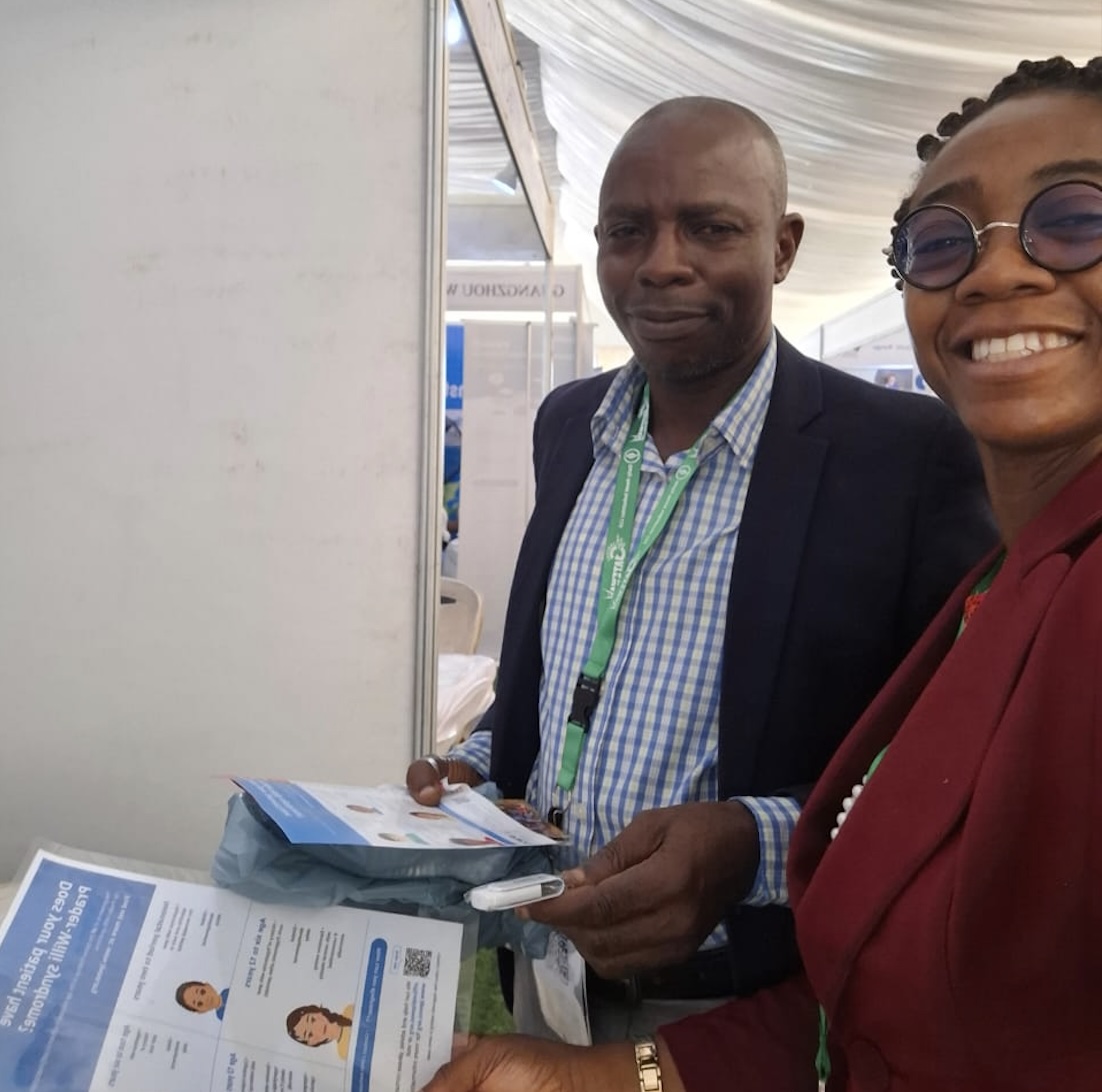
Dr Ashubu discussing IPWSO's educational materials with delegates at our booth.
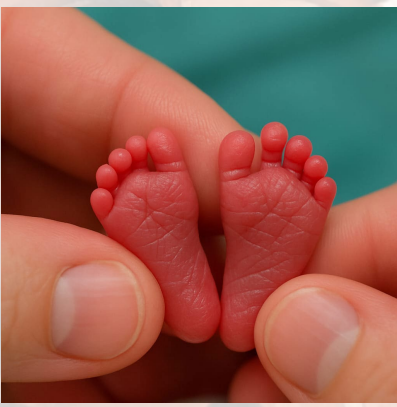
IPWSO was honoured to be invited to present at the Global Newborn Society's Inaugural Conference.
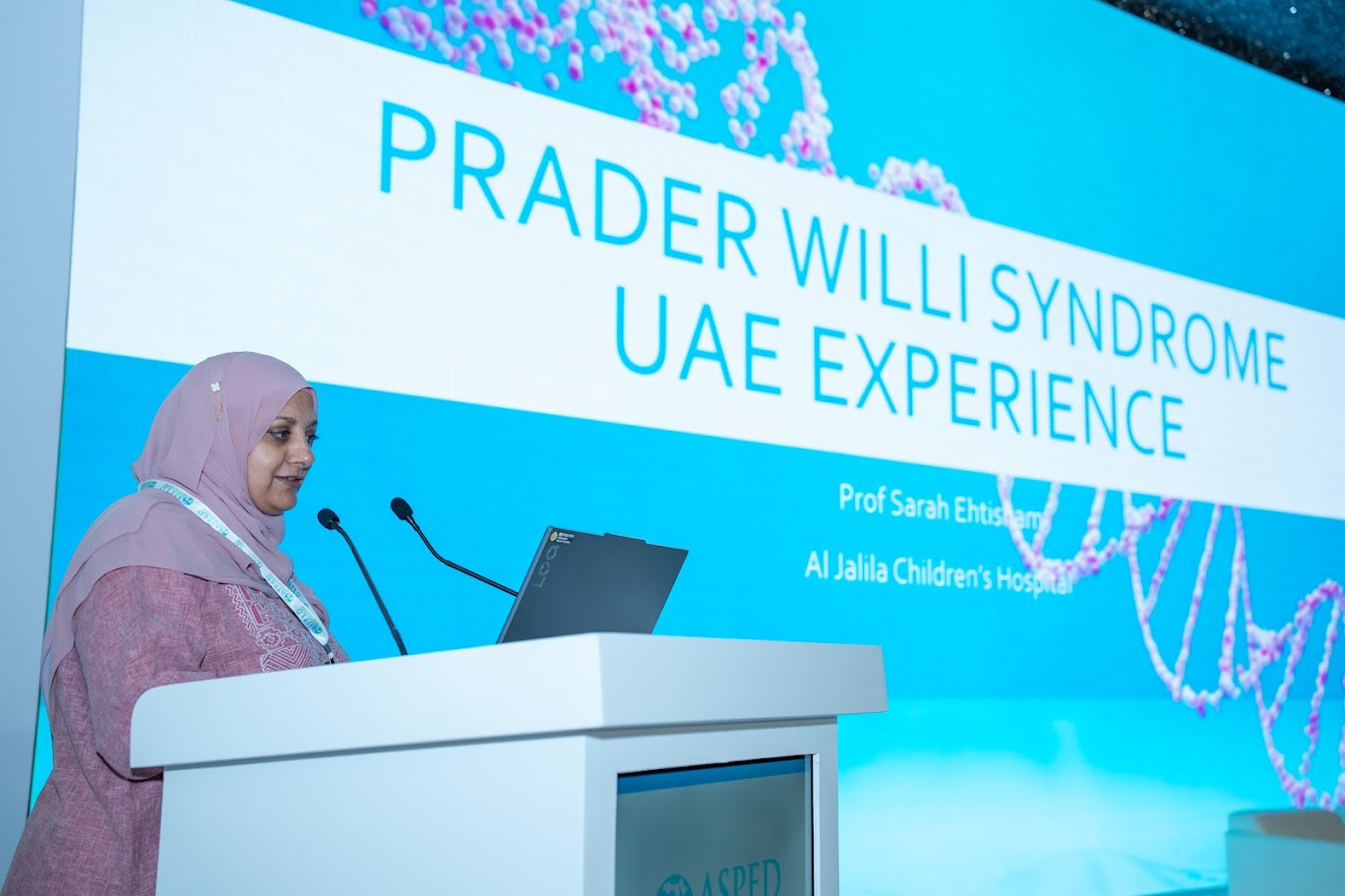
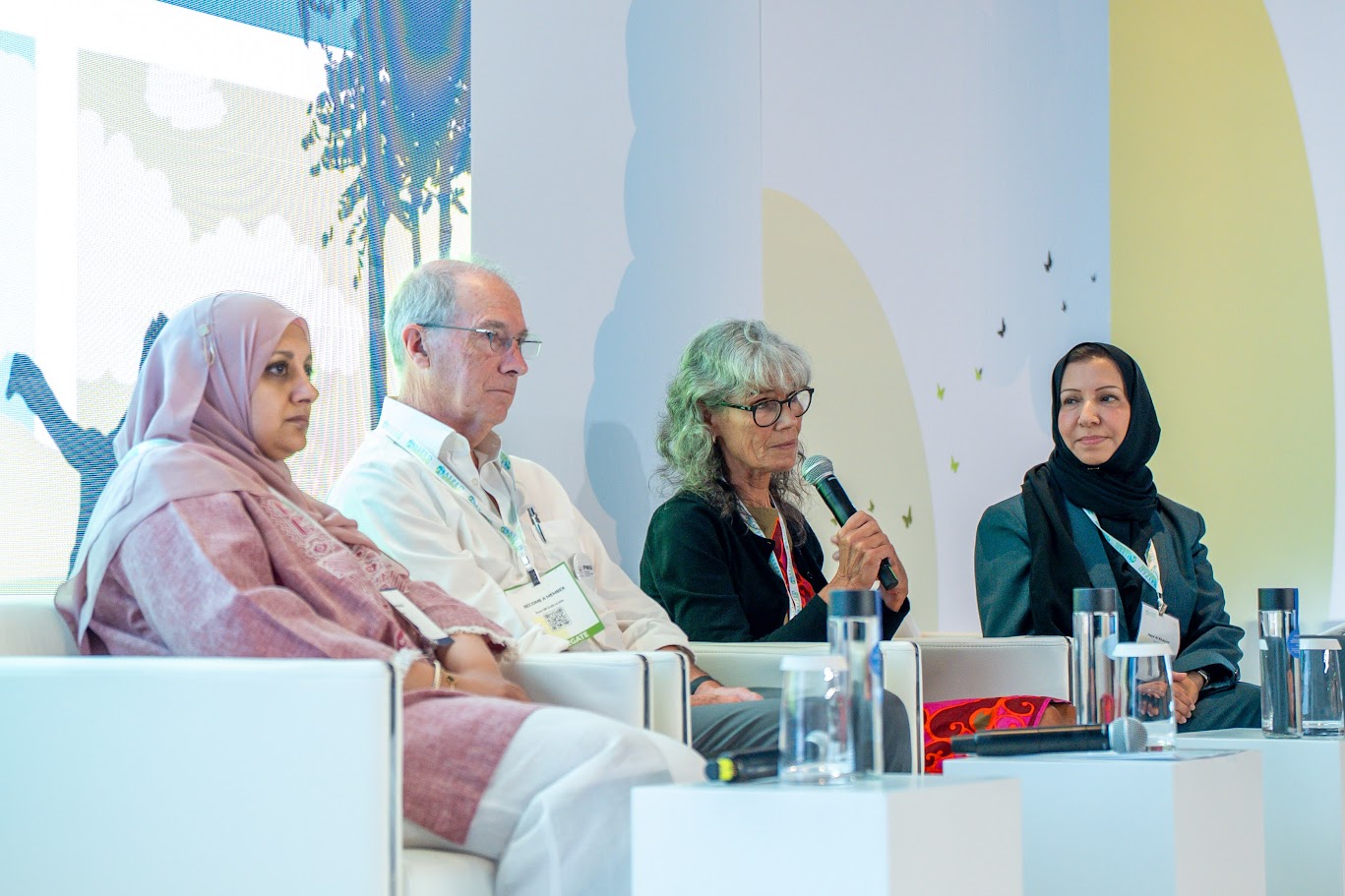
Dr Sarah Ehtisham presenting at ASPED 2025 followed by a panel discussion.
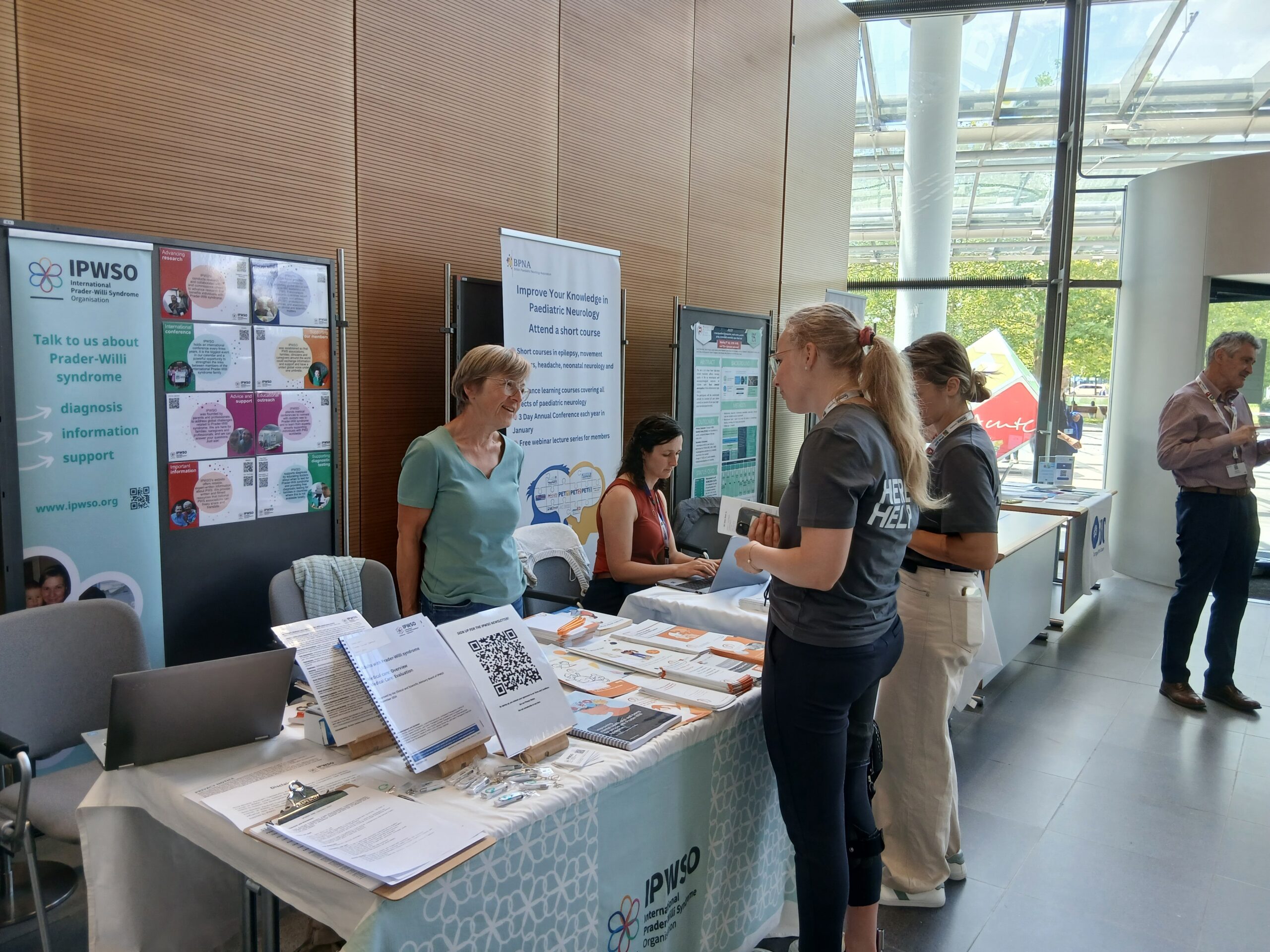
Colleagues from PWS Vereinigung Deutschland help manage our PWS stand at EPNS 2025. Many thanks to all the parents and carers for their invaluable support!
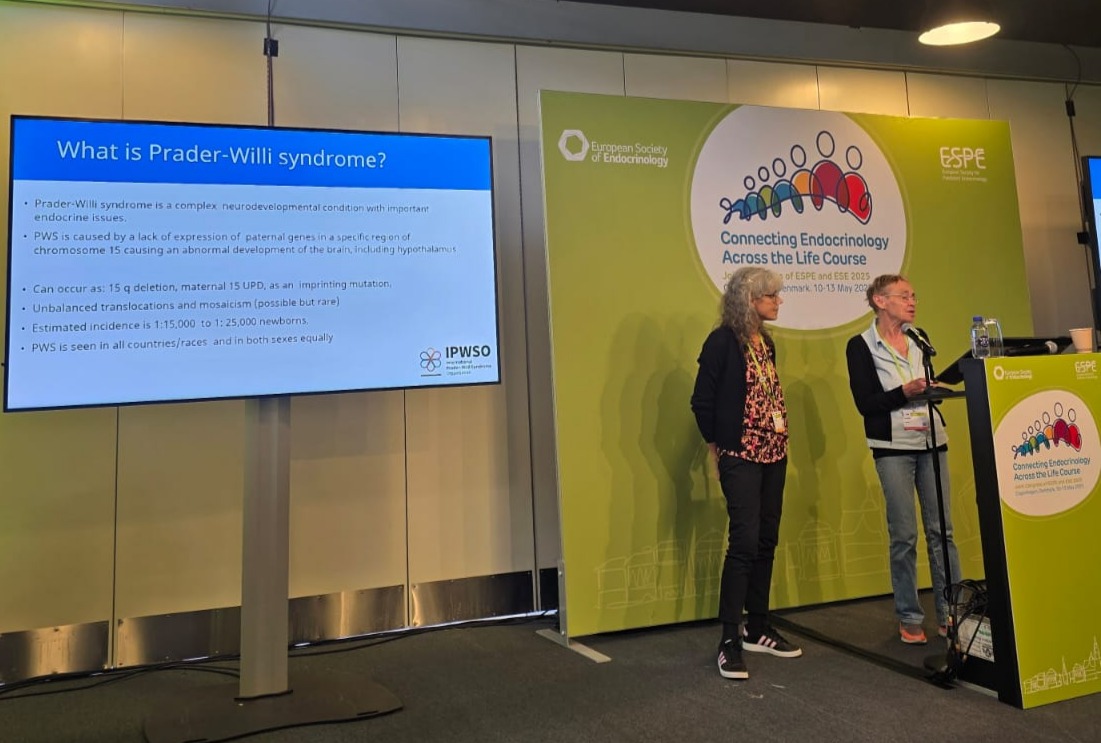
Dr Charlotte Höybye (Sweden) and Dr. Susanne Blichfeldt (Denmark) presenting at the ESPE-ESE Patient Voices Session - May 2025
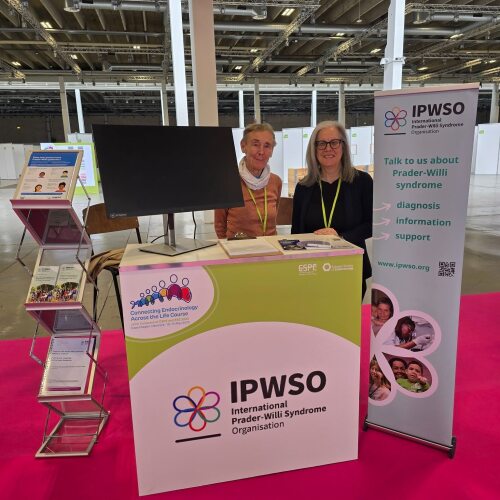
Dr Blichfeldt and Margaret Walker (CEO) managing our IPWSO educational booth.
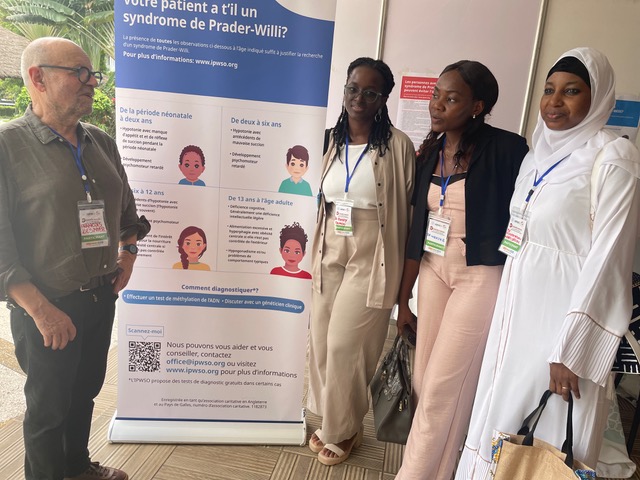
François Besnier, IPWSO's Vice President, meeting some of our travel fellowship delegates at ASPAE 2025.
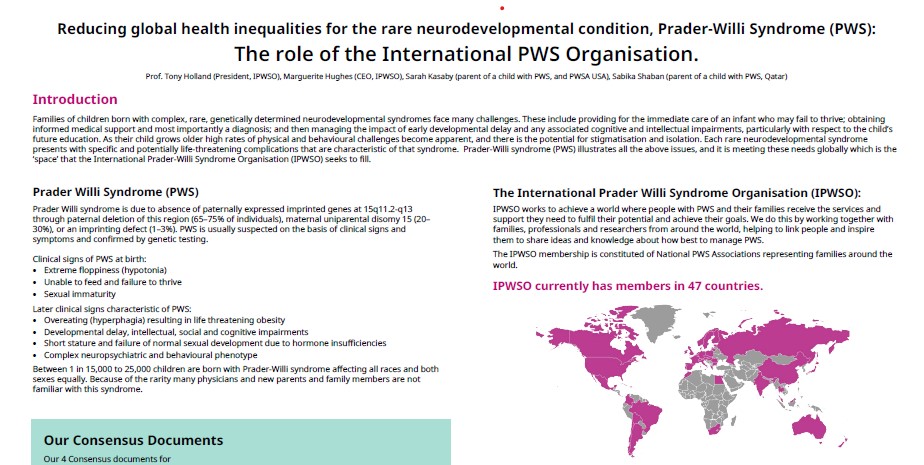
IPWSO's poster achieves top award!
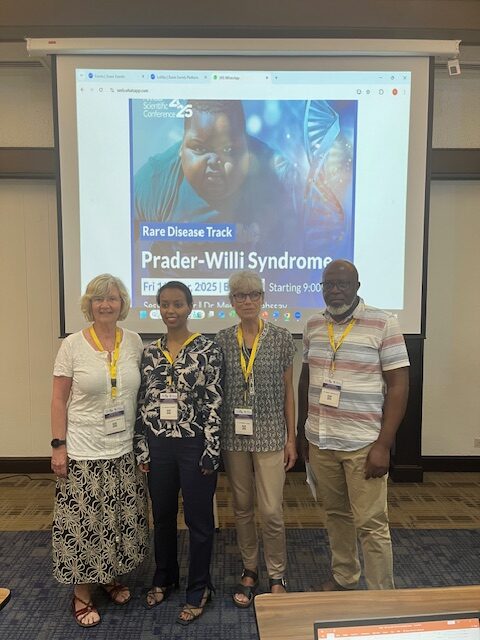
Many thanks to Drs Constanze Laemmer, Menbere Kahssay, Charlotte Höybye and Renson Mukwana for all their support at KPA 2025.
What is PWS?
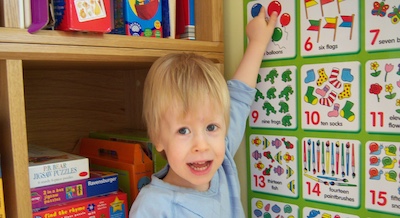
Prader-Willi syndrome is a complex genetic condition. Various studies have shown that between 1 in 15,000 to 25,000 children are born with Prader-Willi syndrome and it affects all races and both sexes equally.
Free Genetic Screening
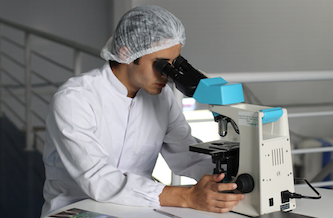
If you suspect your patient has Prader-Willi syndrome, based on the clinical signs and symptoms, but are unable to access testing in your country, then you may be able to access free genetic screening.

